Essential Arts: How are the arts dealing with coronavirus closures? Creatively
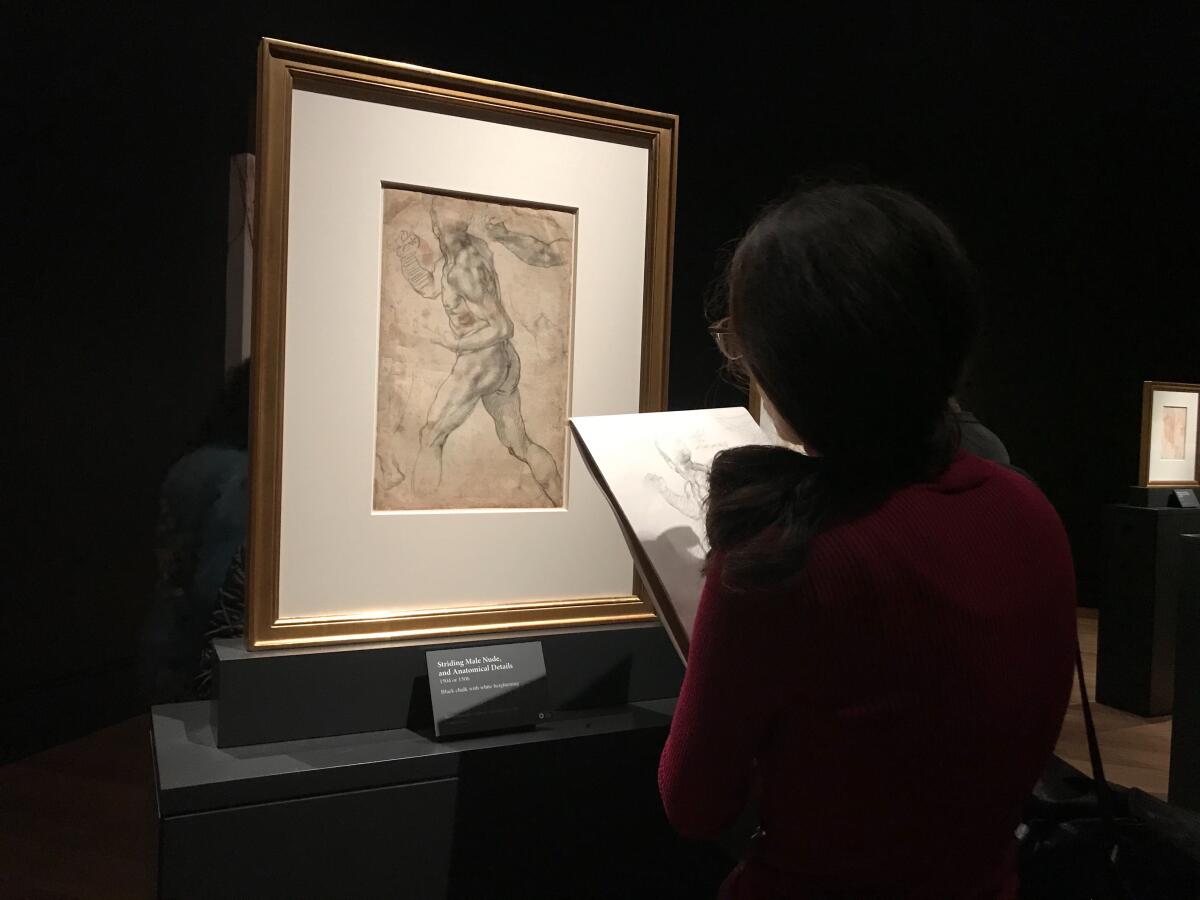
- Share via
In rough times, we turn to culture. I’m Carolina A. Miranda, staff writer at the Los Angeles Times, with your weekly update on what’s happening — and the creative ways that some artists and organizations have found to contend with the coronavirus:
All the cancellations
The World Health Organization has officially declared COVID-19, the disease caused by a novel coronavirus, a pandemic. Gov. Gavin Newsom has called for the cancellation of gatherings of 250 or more people across California. On Friday, the Los Angeles Unified School District announced it would be closing schools. (You can find The Times’ complete coronavirus coverage here.)
All of this has had a cascading effect on California’s cultural organizations.
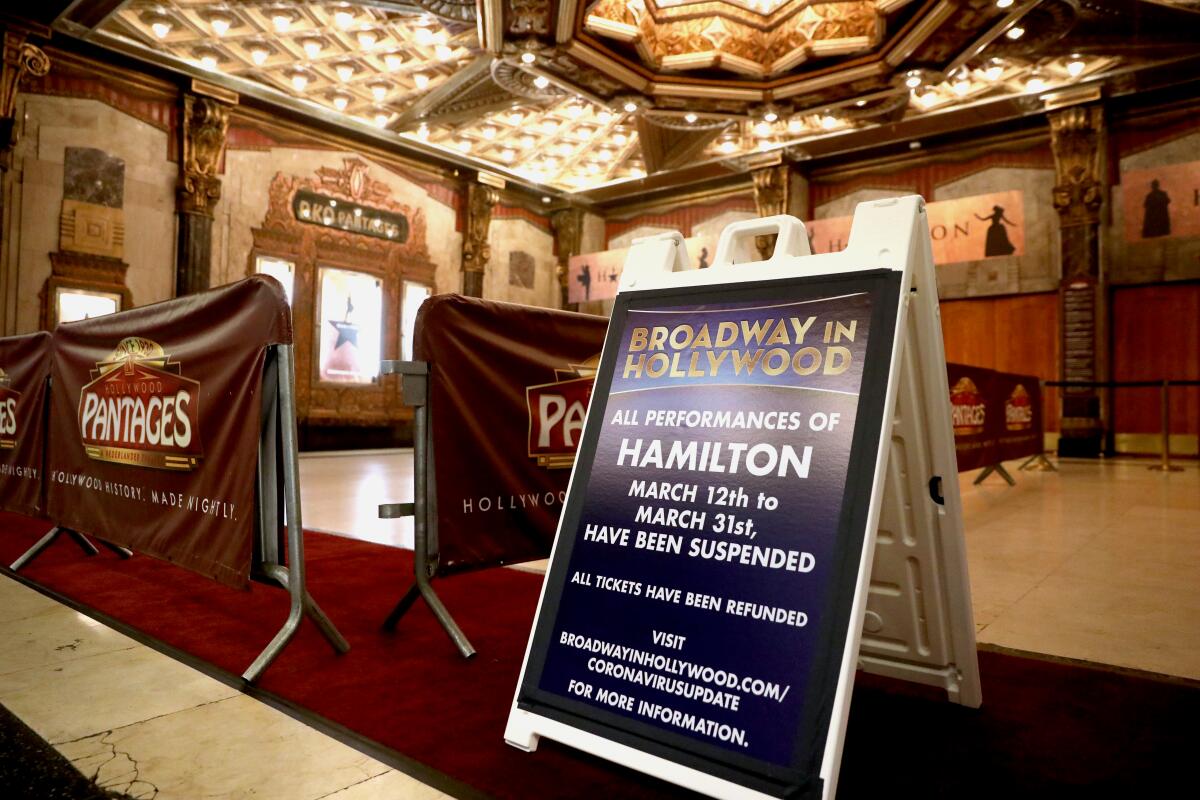
The Times’ Jessica Gelt rounds up the cancellations in the performance arena, including closures at the L.A. Phil, the L.A. Opera and Center Theatre Group. She also reports on the cancellation of the L.A. Art Book Fair, which was scheduled to land at MOCA on April 3.
Deborah Vankin rounds up the many L.A. museums that are shutting down, including, as of Friday, the Getty Center, the Getty Villa, the Broad and the Hammer.
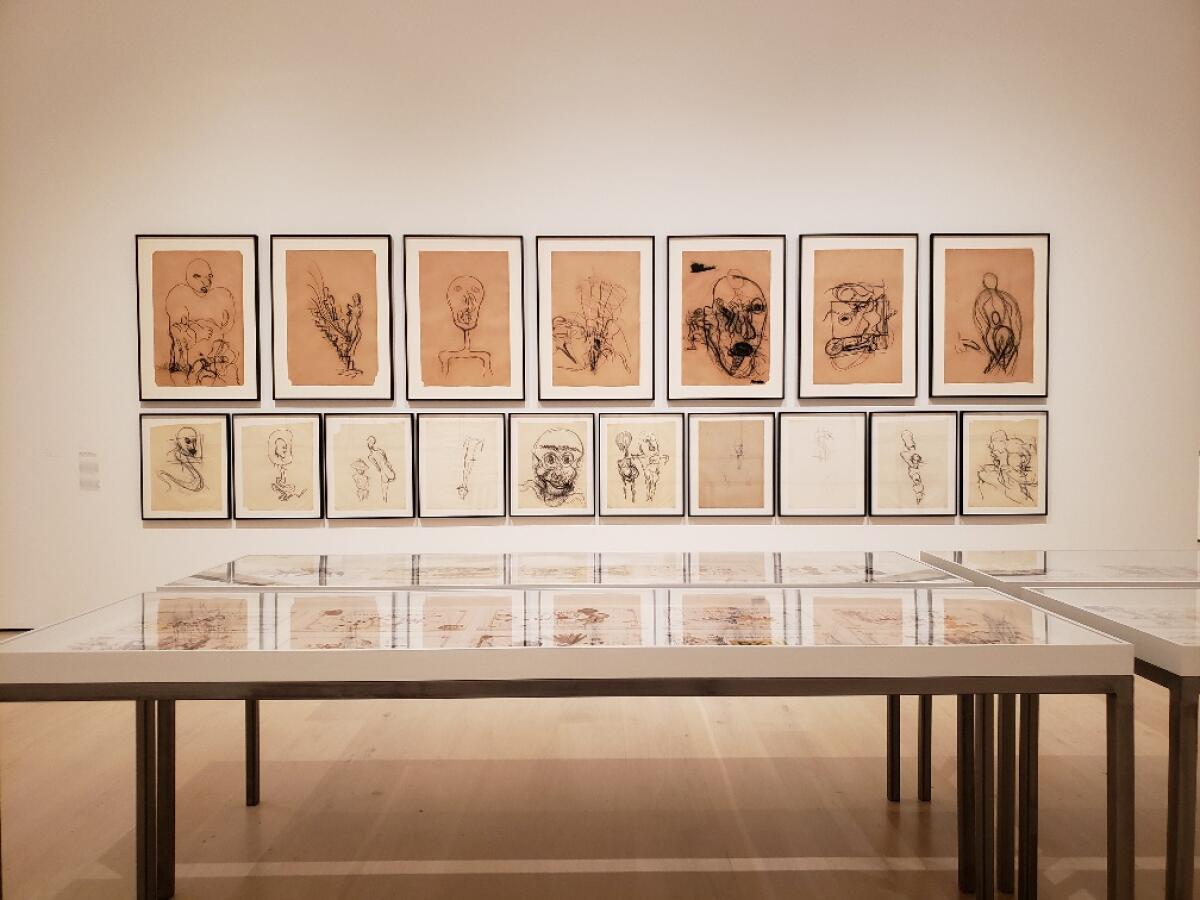
The Times entertainment team is keeping a continuously updated master list of all the movie releases, concerts, festivals and other events that have been shut down — including Coachella and SXSW. For visual arts closures worldwide, ARTnews has a comprehensive, continuously updated list.
Make the most of L.A.
Get our guide to events and happenings in the SoCal arts scene. In your inbox every Monday and Friday morning.
You may occasionally receive promotional content from the Los Angeles Times.
Ashley Lee reports on how the hotly anticipated “Hamilton,” which was about to open at the Hollywood Pantages, has had to suspend its performances, one of many theatrical cancellations in L.A., San Francisco and New York, including Broadway.
KQED reports on the labor angle: basically, that cancellations are “financially catastrophic” for classical musicians.
Early in the week, before the WHO had declared COVID-19 a pandemic, many theaters appeared determined to stay open. Times theater critic Charles McNulty urged them to set aside financial concerns and shut down: “By staying open, theaters are not just acting shortsightedly. They’re betraying their core constituency, older patrons, who are the group most vulnerable to coronavirus.”
A bit of resilience
Though battered, curators, writers, artists and arts organizations are pitching in to make the coming weeks as humane as possible.
Ashley Lee reports on how some theaters, such as San Francisco’s American Conservatory Theater and Berkeley Repertory, are turning to presentations of live video recordings of some of their shows. It’s the sort of thing that could give theater livestreaming a long-term boost.
On his blog, music critic Alex Ross rounds up a list of upcoming classical music livestreams. And Anthony Tommasini, of the New York Times, writes about the experience of viewing live performances staged for empty halls: “one of the most disorienting yet profound views of a performance I’ve ever had.”
Los Angeles Times contributor Stuart Miller reports that Michelle Kholos Brooks’ daring play, “Hitler’s Tasters,” is still coming to the Electric Lodge in Venice. But the theater is capping the audience at 50 people and has instituted extra cleaning procedures.
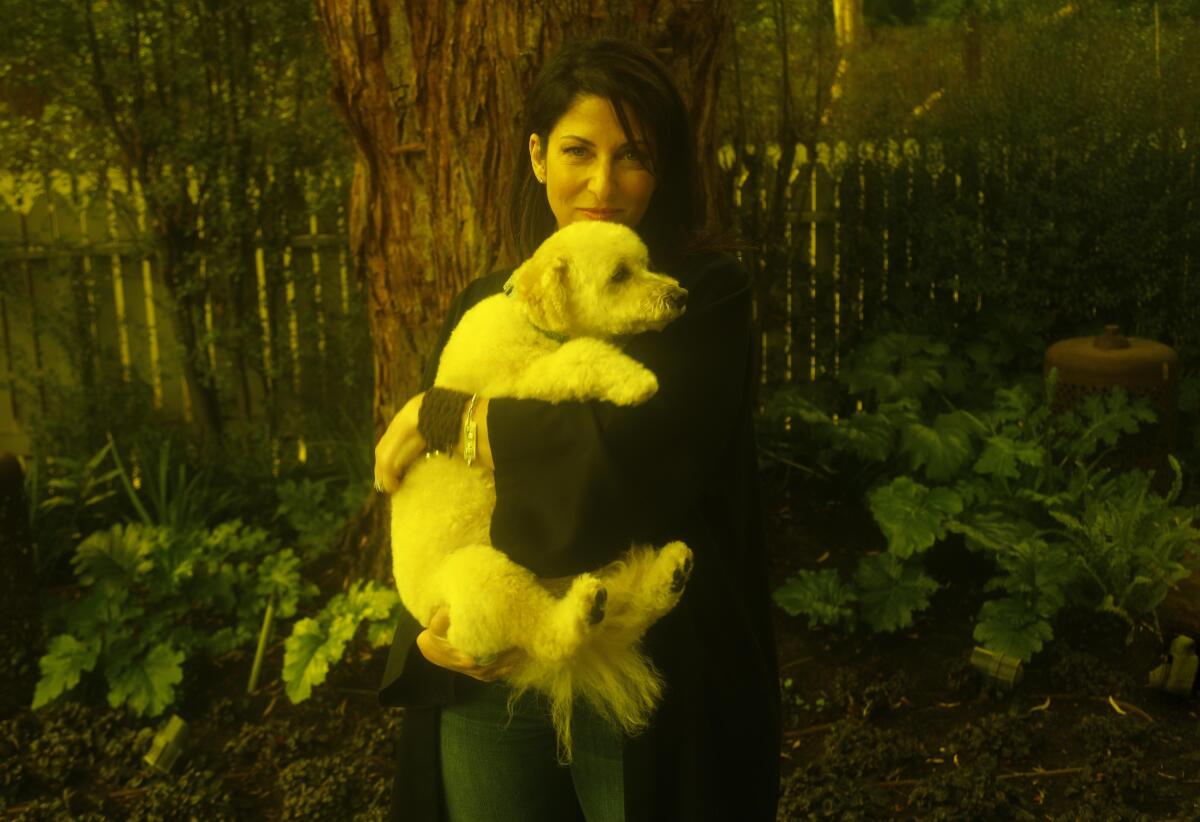
In addition, Ohio-based curator Jordan Spencer made a spreadsheet of all the artists’ books that were scheduled to be released at the L.A. Art Book Fair, along with links to websites where you can acquire them. Find Spencer on Twitter @Jor_danSpen_cer.
Plus, Lin-Manuel Miranda shared an unreleased “Hamilton” track on Soundcloud for everyone to enjoy.
Hyperallergic has a story on how the New York Foundation for the Arts and the Robert Rauschenberg Foundation have teamed up to offer a new medical emergency aid program to artists.
Enjoying this newsletter? Consider subscribing to the Los Angeles Times
Your support helps us deliver the news that matters most. Become a subscriber.
Want to see art at home? The Prado in Madrid has a hit video series on Instagram that features guards, conservators and other generally unseen museum staff as hosts.
New York-based critic Justin Davidson reports on how patrons can support the arts, groups that are “fragile in the best of times.” He writes: “Ticket buyers who come asking for refunds should, if they can, turn them into donations instead. ... Organizations can help their audiences help out. When Opera San Jose canceled its production of Mozart’s ‘The Magic Flute’ yesterday, the company simultaneously announced the creation of the Opera San Jose Artists and Musicians Relief Fund, an acknowledgment that the public might be generous with the suddenly unemployed.”
Davidson also Tweeted about a great story in Italy’s La Repubblica about how Italians are turning their apartment buildings into “sky choruses.” Watch the whole thing. It’s only five minutes and it’s truly inspiring.
Non-corona news
It still exists!
Prior to all of the closures, Times classical music critic Mark Swed managed to check out some of the early shows from the L.A. Phil’s Power to the People! festival, which included an early workshop of “Nueva Canción: Songs of Protest and Resistance” at the Wende Museum. “The avant-cabaret project is a cycle of 1960s songs of political defiance from Latin America that will eventually have a theatrical setting,” he writes.
Previously, he reviewed the festival’s opening program, which included Herbie Hancock’s “I Have a Dream” and a performance of Duke Ellington’s “Three Black Kings,” conducted by Gustavo Dudamel. “Hancock introduced his set by telling the audience that the more he thinks about it, the more he believes the power is from the people,” Swed wrote. “And so it was for a little while.”
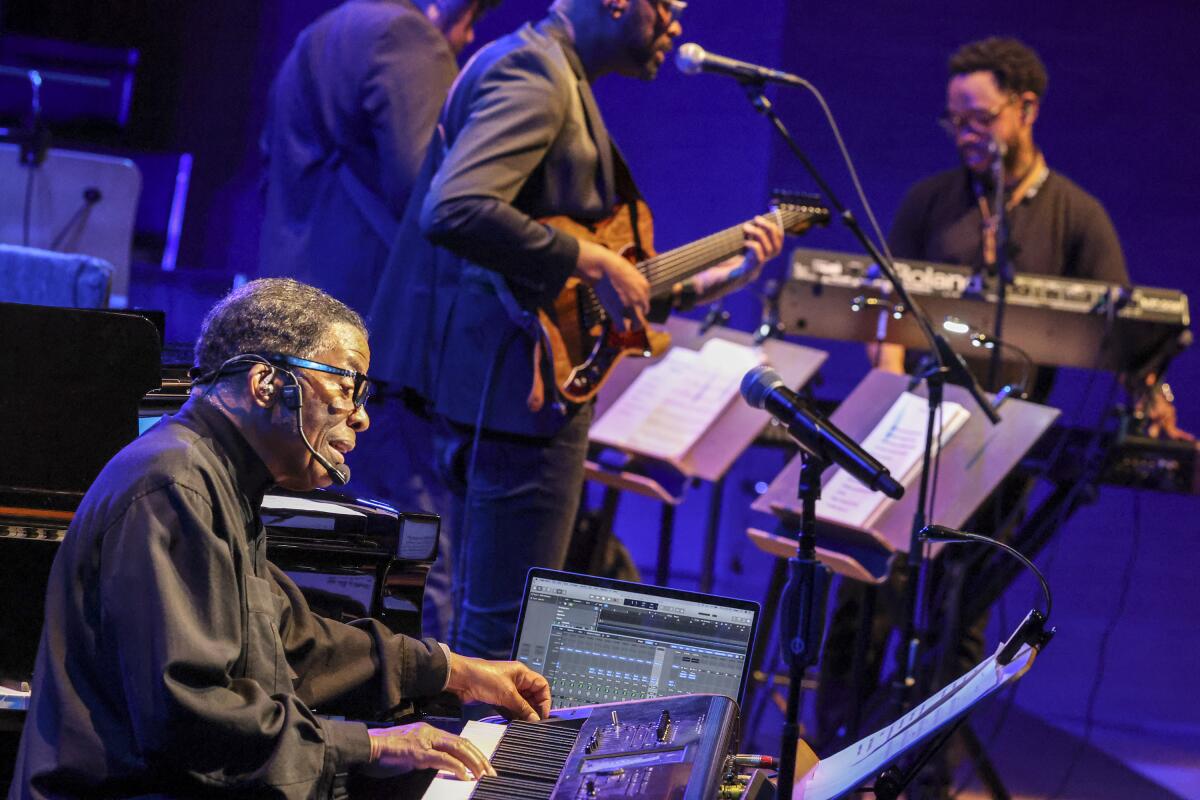
I got to hang with the crew behind the innovative design of the Industry’s “Sweet Land,” an immersive opera that explored themes of colonization in a cluster of temporary structures in Los Angeles State Historic Park. (Like everything else, it too has been canceled — though the company is working on an on-demand video option.) While the opera may be placeless and timeless, it’s a design that has Los Angeles in its bones.
Be sure to click through. The portraits by Times photographer Jay L. Clendenin are stunning, and they beautifully capture the architecture and costume design of this meaningful narrative.
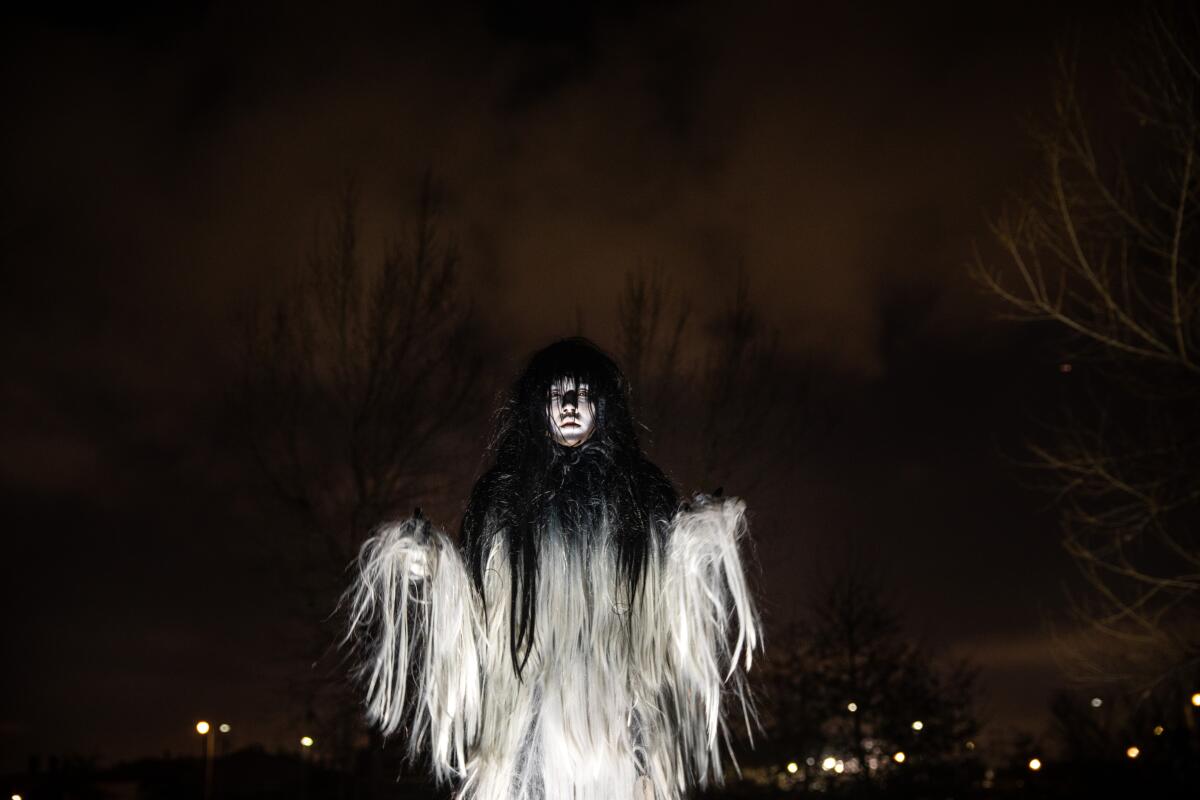
And because development offices have gotta develop: In a rental event at MOCA Geffen, singer Willow Smith sealed herself in a box with a friend for 24 hours in a performance that, as Times reporter Amy Kaufman wrote, was all about anxiety (right before her new album dropped). Thankfully my pal @vidalia was there with a camera.
Domingo update
On Tuesday, L.A. Opera announced that it had concluded its investigation of sexual harassment allegations against former general director Plácido Domingo and found them to be credible. Jessica Gelt was able to view a summary of the report, which featured interviews with 44 people and listed 10 allegations of inappropriate conduct between 1986 and 2019.
Passages
Bill Stern, founder of the Museum of California Design, a pop-up curatorial project that examined the underexplored corners of California design, has died at the age of 79. His career included stints as a park ranger, a film dubber and a food critic at this paper and the L.A. Weekly, but it was ceramics that was his true calling — an area he got into after acquiring a set of Vernonware dishes from a porn star neighbor who was moving away.
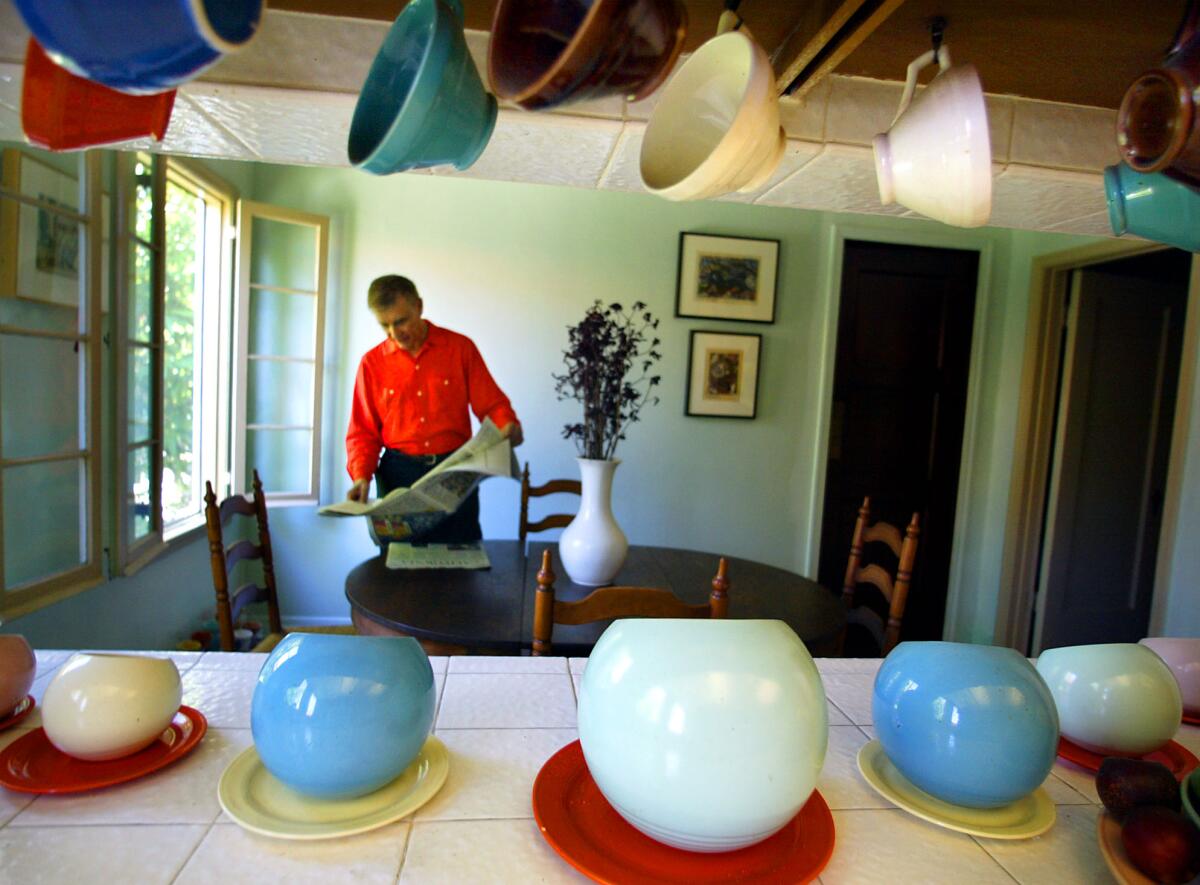
In other news
— Charles McNulty looks at the theatrical season planned for spring. If the pandemic eases and productions begin, the season will be redolent with the sounds of Sondheim.
— And looking ahead to fall, the Geffen Playhouse announced its 2020-21 lineup — the theater’s 25th-anniversary season. It will include Bryan Cranston‘s directorial debut, “The Inheritance.”
— Siobhan Burke has a fascinating read about how Performance Space New York has essentially handed over its programming schedule and budget to a group of artists.
— Artist Tatiana Vahan is conducting an artists’ census in Los Angeles.
— Amnesty International has called for the release of Luis Manuel Otero, an artist detained by Cuban authorities for protesting a censorship decree.
— Sarah Hotchkiss writes an essay on the Hollywood trope of the corrupt art critic.
— William Poundstone has a great story about a show of California women painters at the Long Beach Museum of Art (which as of Friday afternoon remained open).
— An exhibition at the Foundling Museum in London features 500 years of pregnant women in art.
— Which is a great segue to this episode of the art podcast “In Other Words,” in which host Charlotte Burns and L.A. art writer Jori Finkel talk about the ways in which female artists are depicted in media.
— Because we could all use something a little spiritual right now, this conversation between Vija Celmins and Doug Wheeler on David Zwirner’s “Dialogues” podcast is pretty great.
And last but not least ...
Edvard Munch‘s self-portrait after surviving the Spanish flu.
The biggest entertainment stories
Get our big stories about Hollywood, film, television, music, arts, culture and more right in your inbox as soon as they publish.
You may occasionally receive promotional content from the Los Angeles Times.




